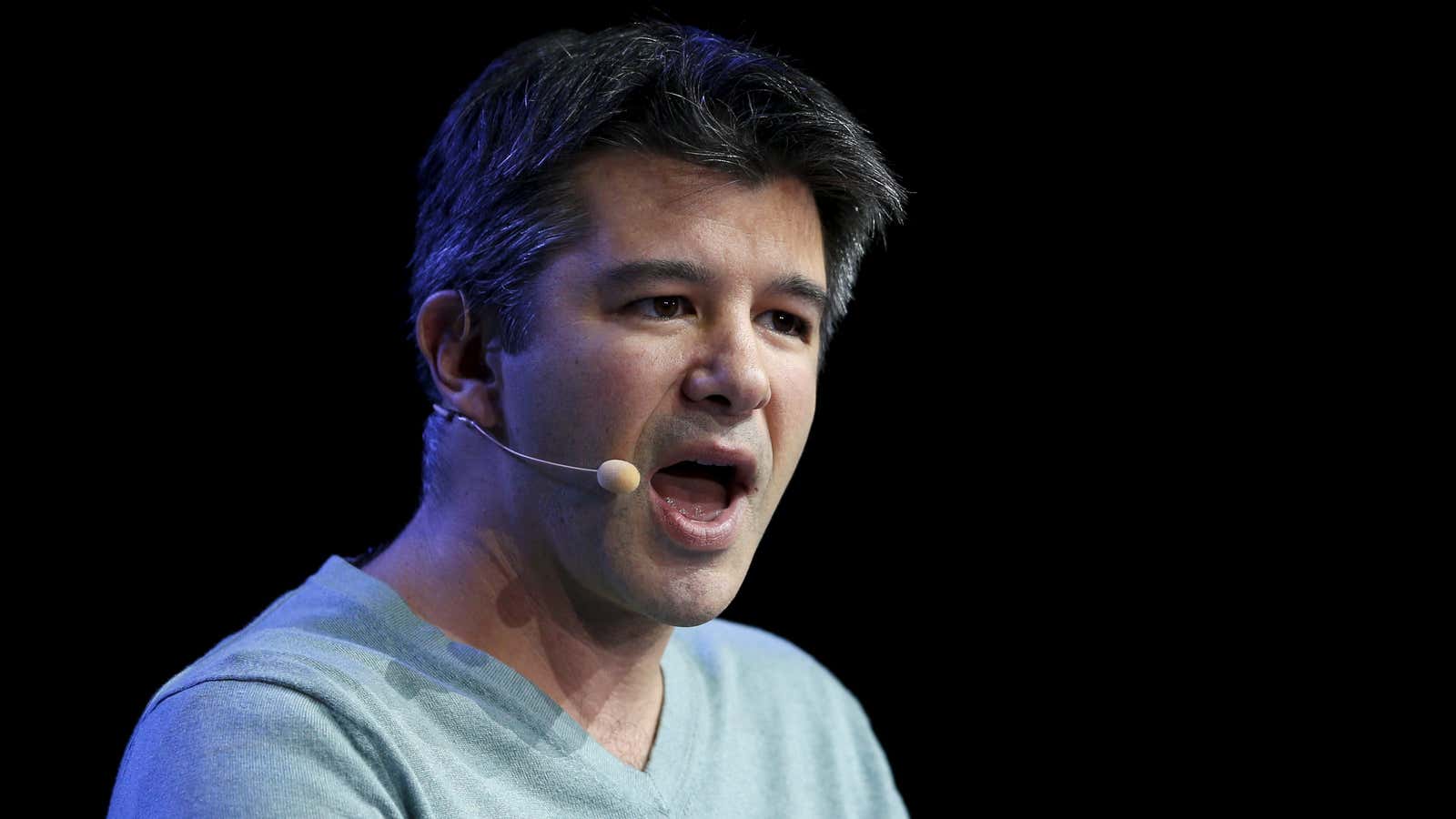On Tuesday (June 14), Uber was back in the funding spotlight. The Wall Street Journal reported that Uber had hired Morgan Stanley, Barclays, Citigroup, and Goldman Sachs to help it raise as much as $2 billion from institutional investors in the leveraged-loan market, ideally at a yield of 4% to 4.5%.
Today, Didi Chuxing stole the show. Per another Wall Street Journal report, the Chinese ride-hailing giant has secured $7 billion in fresh funding to do battle with Uber in the prized Middle Kingdom. The new financing has two parts: a $4.5 billion funding round, which includes the $1 billion Apple invested in Didi in May, as well as a $2.5 billion debt package from China Merchants Bank.
Uber and Didi are fighting doggedly to win loyalties and market share in China, and funding is essential. Last year, the companies spent heavily to build their presences, dolling out big subsidies to drivers and steep discounts to riders. In recent months, they have reportedly cut back—Uber says it’s spending 80% less per ride in China than it did a year earlier, and Didi claims to have reached profitability in more than 200 of its 400 cities. Both are still losing money overall.
Over the last 18 months, Uber’s global business has raised $8.8 billion in funding, according to data from venture capital research firm CB Insights, while Didi has brought in $7.9 billion. Uber also remains the richest and most valuable ride-hailing startup, with $11.5 billion raised to date (including a recent $3.5 billion cash infusion from Saudi Arabia’s Public Investment Fund) and a valuation of $62.5 billion.
But Didi is not so far behind. The company’s latest funding brings its fundraising to $9.6 billion (including debt, lines of credit, and other non-equity forms of financing), and its valuation to $25 billion. And whereas Uber is allocating its resources globally, Didi’s sole focus is China.
While good numbers are hard to come by, most reports suggest that Didi is winning the local contest handily. Estimates place Didi’s share of China’s ride-hailing market at around 90%. In an announcement earlier this week, Didi said it’s facilitating as many as 14 million rides per day.
Meanwhile, in a perhaps unsurprising development, Uber’s and Didi’s insatiable appetites for new financing has led to them sharing several investors. China Life Insurance, a state-owned insurer that invested $600 million in Didi earlier this month, gave $200 million to Uber in April 2015. Didi and Uber are also mutually backed by investment firms Hillhouse Capital and Tiger Global.
